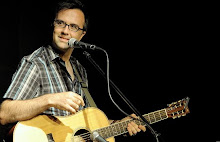Gibson offers helpful suggestions on how to discern a real Gibson from a fake and suggests that prospective customers buy only from authorized Gibson dealers. They and others, like George Gruhn, offer that if an online guitar price seems too good to be true, it probably is.
 In spite of these efforts, DHGate.com and TradeTang.com continue to operate, selling badly copied Les Pauls with Gibson logos for around $200-$300 USD. Ibanez, Fender and Gretsch guitars are also common targets. Ed Roman reports that Mosrites, especially the Ventures model, have been heavily counterfeited for years. Cheap Chinese labor and computer-assisting manufacturing make the mass counterfeiting of guitars possible, along with the widespread popularity of Ebay and the willingness of many to buy guitars through the mail.
In spite of these efforts, DHGate.com and TradeTang.com continue to operate, selling badly copied Les Pauls with Gibson logos for around $200-$300 USD. Ibanez, Fender and Gretsch guitars are also common targets. Ed Roman reports that Mosrites, especially the Ventures model, have been heavily counterfeited for years. Cheap Chinese labor and computer-assisting manufacturing make the mass counterfeiting of guitars possible, along with the widespread popularity of Ebay and the willingness of many to buy guitars through the mail.My own experience with counterfeit guitars has taken place not in the Chinglish-laden precincts of fake-guitar cyberspace, but in local vintage guitar boutiques around Toronto. Nash Guitars makes strikingly accurate copies of vintage Fenders, even copying the now-popular 'relic' process of finish wear and hardware rust. The Strats and Teles that I saw at Capsule Music even had Fender decals on the headstocks. While these were not claimed as vintage Fenders in the store, they certainly could be claimed as such to fellow musicians, friends and curious onlookers once the guitar was purchased. About ten years ago I saw beautiful copies of sunburst Les Pauls, complete with inlaid Gibson logo, being manufactured and sold out of the now-defunct Guitar Clinic in Hamilton, Ontario. Again, these were not being sold explicitly as Gibsons (and they were not cheap, selling in the $1500-$2000 range) but the buyer for all appearances was the proud owner of a '59 Les Paul.
What seems to be missing from the discourse around fake guitars is the realization that many buyers KNOW that they are buying a counterfeit. For these buyers, a name brand represents bragging rights and credibility more than build quality or tone. If the prestige of a Gibson can be purchased for a fraction of the price of an authentic Gibson guitar, all the better. Women who buy knockoff Gucci bags on the streets of New York City know that they are knockoffs, but they won't necessarily correct their friends when they ooh and aah. The fact is that owning a prestigious guitar bestows a certain aura on the owner - to other musicians, it can give a guitarist a certain legitimacy. I have certainly experienced peer pressure to own 'cool gear'. So I understand the desire on the part of some buyers to take part in the aura of expensive instruments for a cheaper price, and that is why counterfeiting will never be completely eradicated by 'educating' the buyer.












Nash Guitars are hardly fakes or counterfeits. If you go to the Nash website, none of the guitars have Fender decals on them. Perhaps applied by Capsule? My thesis is that today's "genuine" Fender guitars stopped being genuine Fender guitars the day Leo sold and left the company. Fender now sells what Nash sells: copies of real Fenders!
ReplyDeleteGuitar Clinic Les Pauls now resell in the region of $4,500-$5,500 - not $1,500. These replicas of old Les Pauls were the inspiration for the Gibson Historic reissue series and were vastly superior in construction and tone to anything Gibson was manufacturing at the time. The Guitar Clinic Les Paul replica is still to this day a highly sought after instrument among players in the know.
A '59 Gibson Les Paul currently resells for up to $500,000 USD - I would rather own a Guitar Clinic Les Paul to gig with and I would proudly tell everybody that it's Canadian-made replica.
Love your blog!
David Love
David, thank you for your thoughtful comments. I'm not implying that Nashes are counterfeit, though I get the impression that earlier models came from the factory with Fender decals already affixed. In any case it's easy enough to stick a mail-order fake decal on a blank headstock that is the exact shape of a Strat headstock. Didn't Fender succeed in quashing Tele and Strat lookalike headstocks for a while there in the 90s?
ReplyDeleteThanks for the info on the GC Les Pauls - another guitar that I should have bought when I had the chance!
I stand behind my original point that some players would let others be misled about the authenticity of their fakes, even as they themselves know the truth. Obviously anyone who knows anything is not going to be fooled by a claim to own a real '59 Les Paul though.
I agree with your original point, however, none of the professionals I know would carry on such a deception. On the contrary, most of the guys I know take pride in pointing out subtle or special differences that sets their gear apart from everybody else's even though it may be of a garden variety brand.
ReplyDeleteThe beauty of the Nashes and Guitar Clinic replicas of the world is that they are not merely well crafted instruments, but that they are works of art.